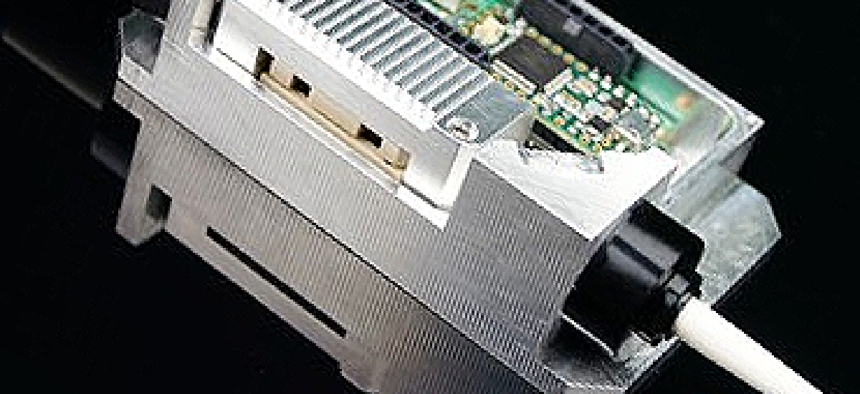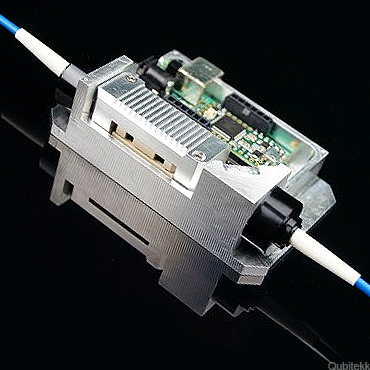Oak Ridge licenses its quantum encryption method

A commercial firm hopes to use the technique to help the energy sector protect power-grid data from cyberattacks.

A Qubitekk prototype will incorporate ORNL's single-photon source approach, thereby bringing the device closer to generating pairs of quantum light particles in a controlled, deterministic manner that is useful for quantum encryption. (Photo by Qubitekk)
Oak Ridge National Laboratory has licensed a method its researchers developed to keep encrypted machine-to-machine data from being intercepted.
San Diego-based quantum technology company Qubitekk has signed a non-exclusive license for the lab’s method of "down-conversion" of photons, which produces random, unpredictable pairs of the particles to confound the interception of data, the lab said in a July 25 statement.
"Current encryption techniques rely on complex mathematical algorithms to code information that is decipherable only to the recipient who knows the encryption key," according to the statement. "Scientists, including a team at the Department of Energy’s ORNL, are leveraging the quantum properties of photons to enable novel cryptographic technologies that can better protect critical network infrastructures."
According to lab officials, the technique harnesses quantum physics to expose, in real-time, the presence of bad actors who might be trying to intercept secret keys to encryption algorithms used by the energy sector.
Qubitekk President and CTO Duncan Earl said in the ORNL statement that his company plans to enhance its existing single-photon quantum information prototype by integrating the lab’s design. Earl is a former ORNL researcher who worked with the lab's Cyber Warfare group and Quantum Information Sciences team.
The company's work could lead to a tenfold increase in quantum encryption rates and the ability to maintain high data transmission speeds over longer distances, he added.
Earl said the firm plans to conduct field trials with its customers, which include California utility companies.


